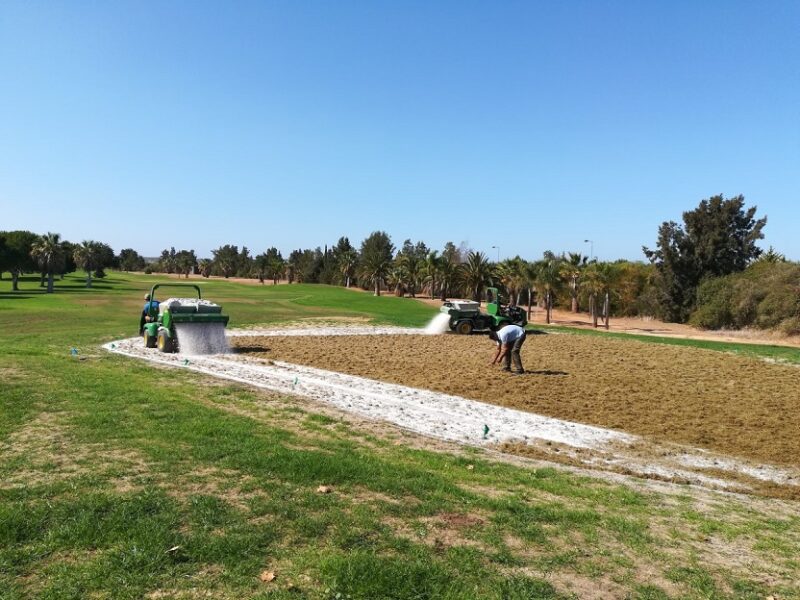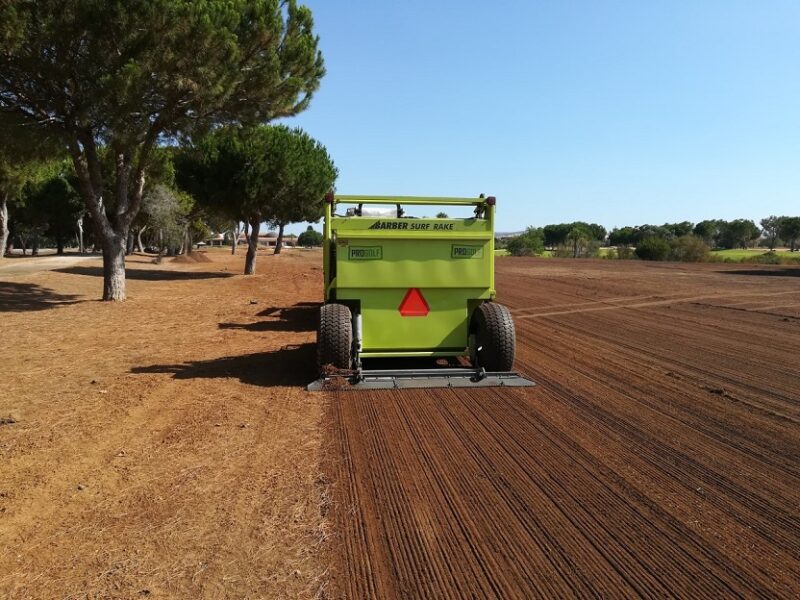Water scarcity affects at least 11% of the European population and 17% of EU territory. The demand for water will continue to grow and will put a strain on golf clubs and resorts. Climate change is worsening the situation.
A GCAA study found nearly 13% of the total golf club budget is spent on the water.
This is why water conservation should be a top priority for every golf club. Before I would share with you the great news from the Dom Pedro Laguna Course, let me share with you GEO‘s recommendations:
- Make an irrigation audit,
- Sprinkler head adjustment,
- Use recycled water,
- Select turfgrass species carefully,
- Clubhouse operations – how to use less water and contribute to rainwater collection, etc.

Dom Pedro Laguna Course – thoughtful water usage
I reported two years ago that Dom Pedro Golf takes sustainability seriously. This is why I interviewed Simão da Cunha (the Head of Golf Operations at Dom Pedro Golf) in 2019.
Now, I can tell you the Dom Pedro Laguna Course will get a new state-of-the-art Rain Bird IC irrigation system to increase coverage efficiency and reduce water consumption by up to 30%.
The course is expected to be supplied with recycled water treated (ApR) from the Vilamoura Wastewater Treatment Plant upon its reopening.

Dom Pedro Laguna Golf Course – other changes
Led by Rui Grave, the resort’s Head Greenkeeper, the bunkers will be restored with a fresh new layer of white sand to enhance their overall structure, with increased levels of solidity, texture, and compaction for a greater playing experience, whilst additional bunkers will be transformed into natural grassland areas.
Modifications are due to make the Dom Pedro Laguna Golf Course the first golf course in Portugal to use 100% Bermuda Grass across all of its greens, fairways, and tee boxes; rejuvenating them with improved aesthetics and increased water consumption proficiency, to provide optimal playing conditions all year-round.
Close attention is also set to be paid to all tee boxes, realigning and re-leveling them to showcase a pristine flat finish that will allow the greenkeeping team to maintain the tees at a lower mowing height, improving the playing experience for all guests.
The requalification will look to increase animal integration across the course with an artificial island set to be formed in the lake between the 4th and 5th holes to allow birds and other species to create new nesting environments, expanding the existing biodiversity that already includes a colony of otters.
Final thoughts
On one hand, the usage of Bermuda grass is a very good idea in this part of the world (Algarve) since this turfgrass species has got a very good heat and drought tolerance. Furthermore, it has got a very good traffic tolerance too.
On the other hand, its maintenance needs are high.
It would be great to know which Bermuda grass cultivars they will use. Tifdwarf (excellent choice for tee boxes and greens) or Tifgreen or Ultradwarf or something else?
